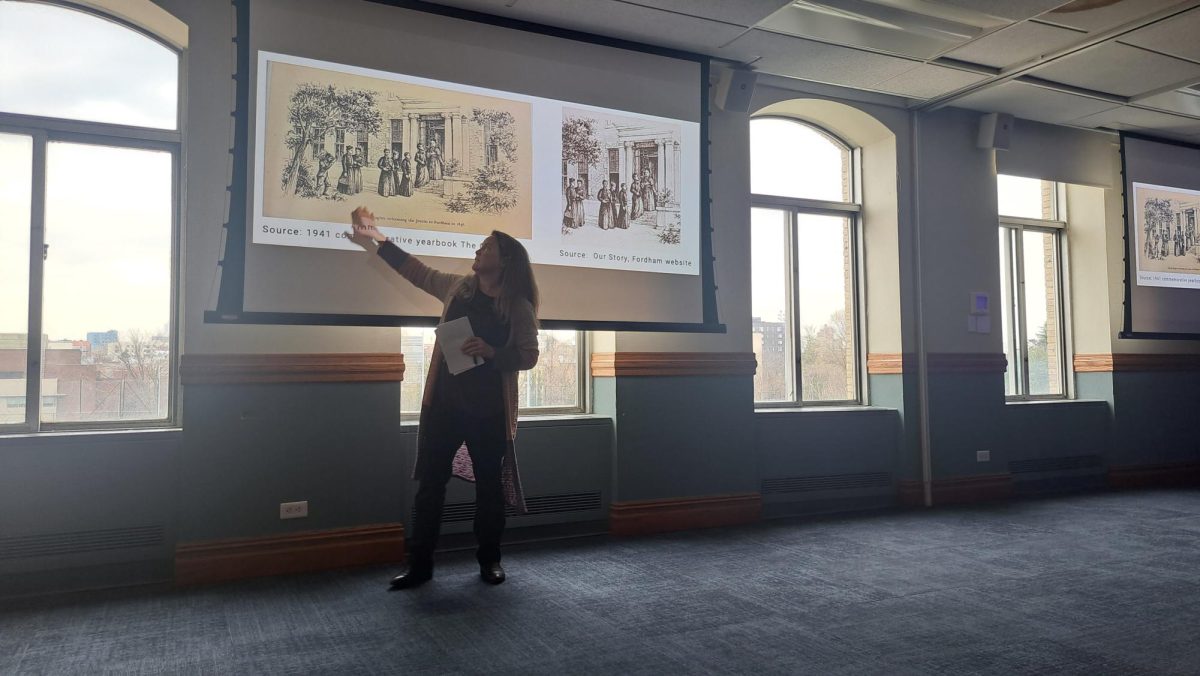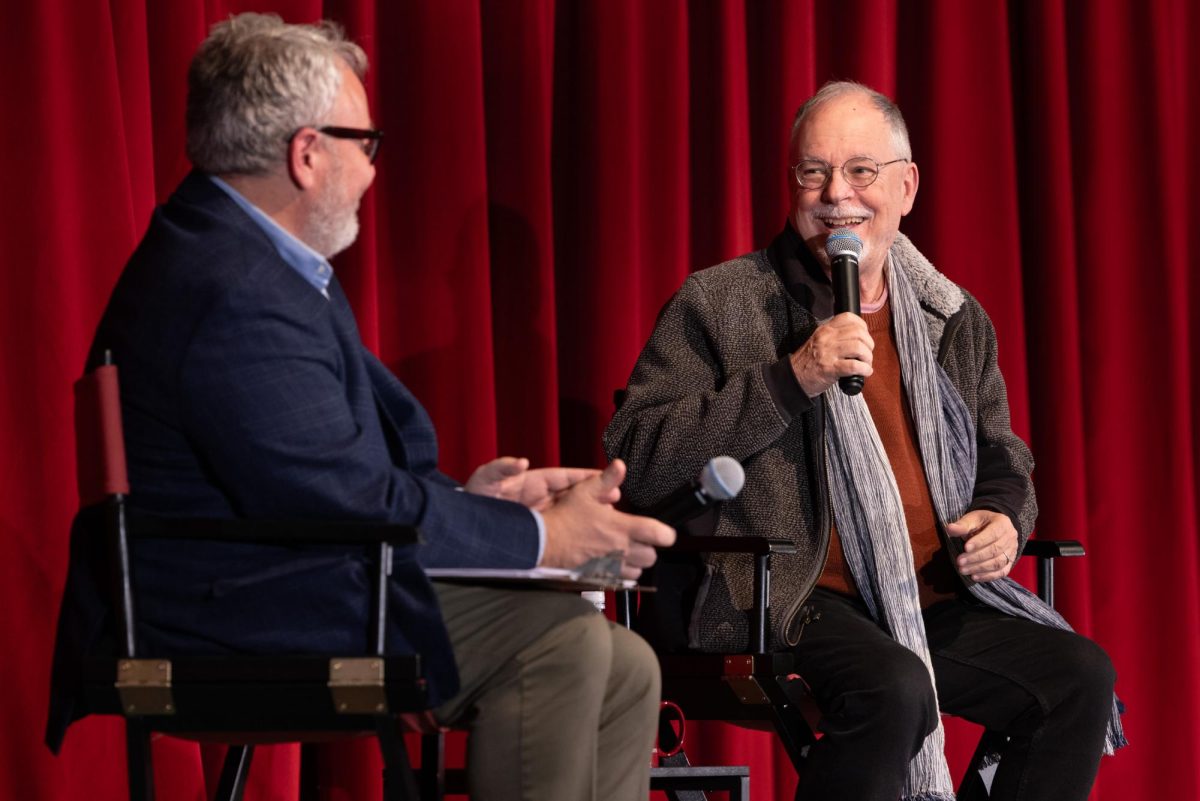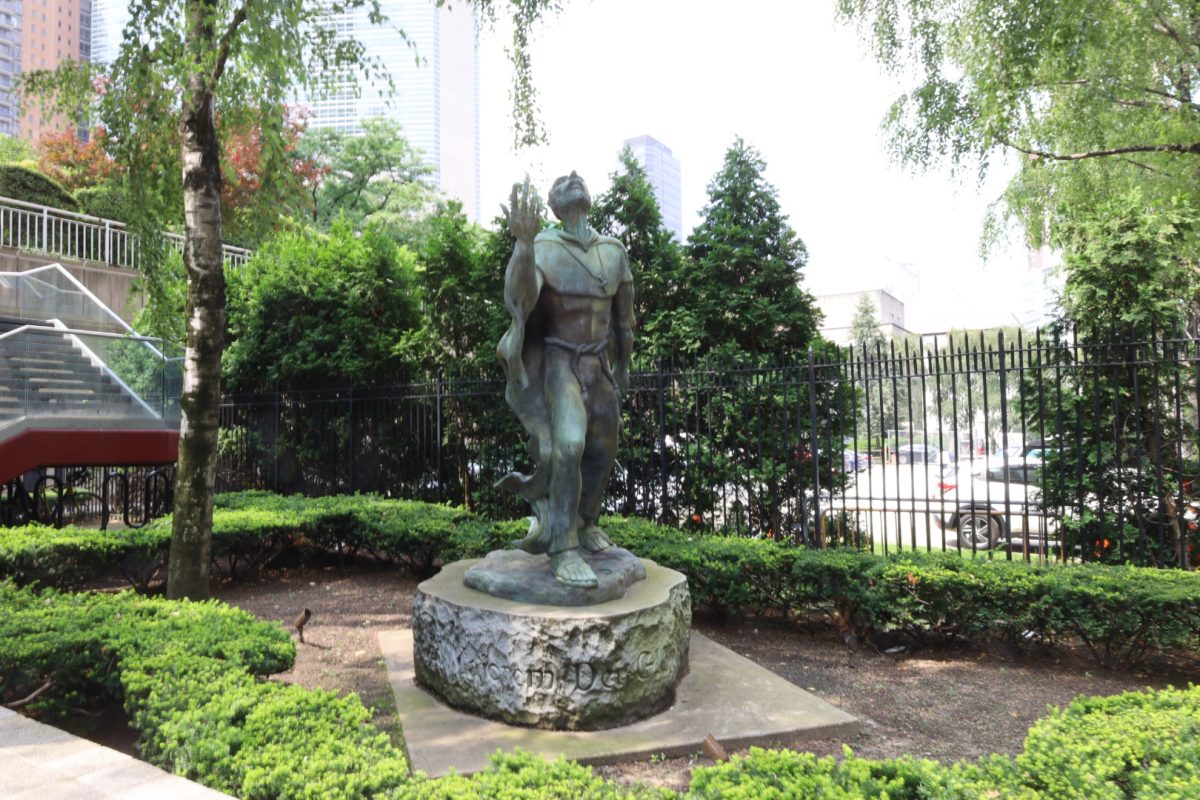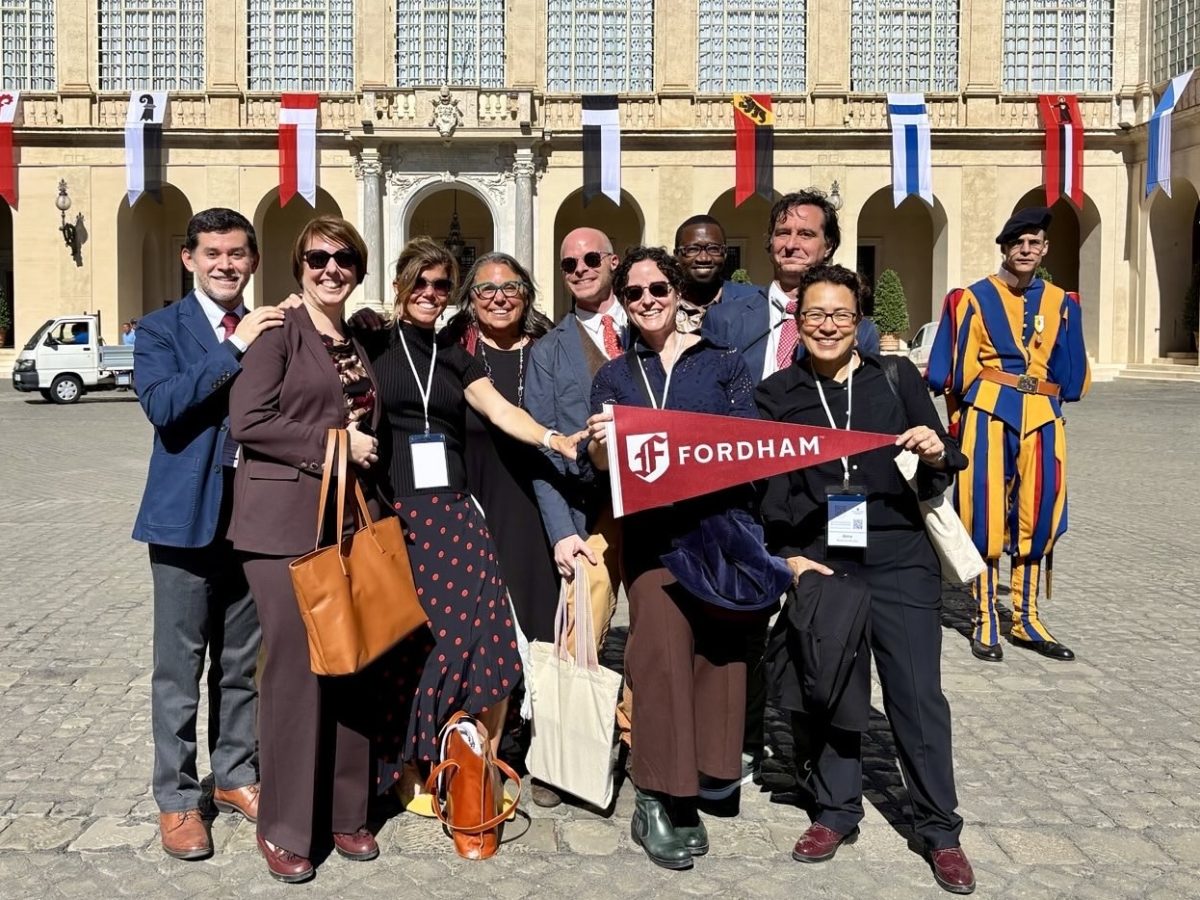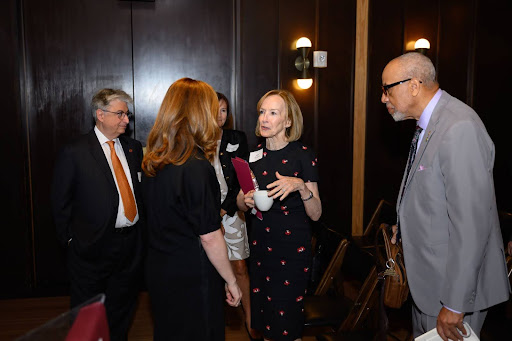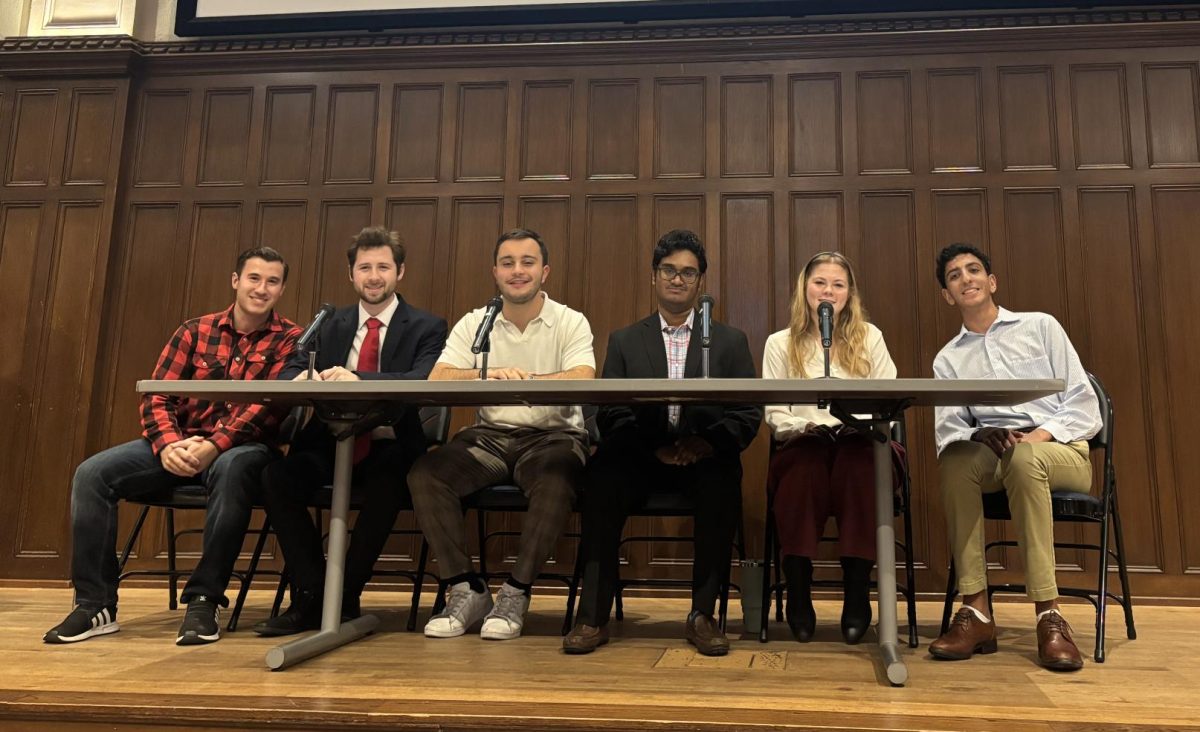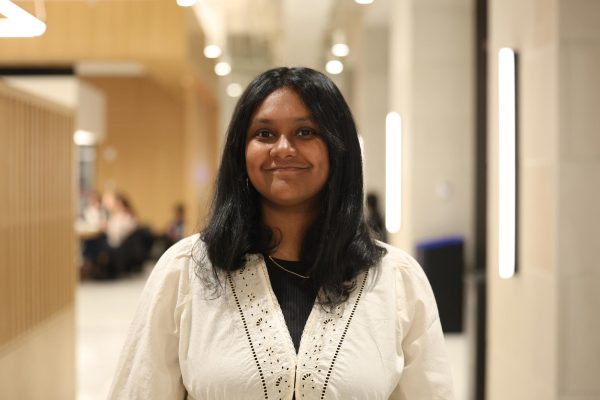On April 8, Fordham University’s Black Student Alliance (ASILI) hosted a forum titled “Black Erasure at Fordham.” Hosted in Rose Hill Commons in the McShane Campus Center, the discussion examined Fordham’s history of Black erasure and ongoing initiatives to combat this. The talk included professors Gregory Jost of sociology, Mark Chapman of African and African American studies and Jeannine Hill-Fletcher of the theology department and was attended by students, faculty and alumni.
Jost began the round of presentations with an examination of Willis Nathaniel Huggins, the first Black man to receive a Ph.D. from Fordham in 1932. Jost encountered Huggins while doing archival research on the South Bronx Black newspaper The Listener News.
“It [The Listener News] also noted the fact that he was the first Black person to receive their Ph.D. from Fordham University and happened to be from the Graduate School of Education in 1932. And, wow, I’ve never heard of his name before. Here’s this very important person in Fordham’s history. Why do we not know anything about him?”
Other professors, including Chapman, were also unaware of Huggins even though he was a prominent community leader, historian and academic.
“When my former student and friend Gregory contacted me and asked me had I heard of Willis Huggins, to my shame, I had to say, ‘no.’ He said, “Do you know that he was the first Black man to get a Ph.D. from Fordham University in 1932?’ I said, ‘No, I never heard that.’”
Chapman went on and explained that Huggins received both bachelor’s and master’s degrees from Columbia University and became head of the history department at Alabama A&M University when he was 22 years old. He eventually became a teacher in the New York City public school system (the sixth black person to do so) and advocated for African American history education. When he was met with resistance, he founded the Harlem Club for community members to learn about African American history. In 1941, he went missing, only for his body to be found in the Hudson River six months later — an incident the police labeled as suicide but that the community stressed was foul play.
Jost read a statement on the Bronx African American History Project (BAAHP) on behalf of Professor Mark Naison, who was unable to be in attendance.
“The Bronx African American History Project was founded in 2003, in response to two different forms of Black erasure,” said Jost.
“The first was the erasure of Black people in the Bronx, from both histories of the Bronx and histories of Black New York. The second was Fordham’s character as a gated community, leading it to be viewed as a forbidden city by many of the Bronx’s Black residents, a place where they were not welcome.”
In its early stages, the BAAHP conducted oral histories of Bronx residents, inviting them into Dealy Hall and welcoming them with a meal. Residents responded extremely positively, which encouraged the BAAHP to organize events that were open to the community and free of charge.
“The response of the people we interviewed to this experience spoke volumes. The vast majority of the people we interviewed had never been on the Fordham campus before and regarded the university as a place that kept them out and that had no connection to their lives. They were thrilled to be on campus, thrilled to be treated with respect and glad that at least some professors at a major university were committed to correcting their exclusion from the history books.”
The final presentation was given by Hill-Fletcher on a research project on Fordham’s ties to slavery that she is currently conducting with Professor Ayesha James, director of legal writing at Fordham School of Law. The project stemmed from discussions that occurred after a 2016 article about a sale of enslaved Africans at Georgetown University in 1838 — three years before Fordham was founded. Hill-Fletcher pointed out key ties to slavery in Fordham’s history, such as that most of the students who were admitted back in 1841 were the descendants of enslavers and that Archbishop John Hughes was an overseer of slaves before he founded Fordham.
“Together, we’ve been trying to put together the pieces of this story in a different way, the ways in which Fordham kind of distances itself from an economy of enslavement,” said Hill-Fletcher.
Alumni and students then reflected on the implications of erasure. Marion Bell, FCLC ’92 and chair of the Multicultural Organization Supporting Alumni Initiatives and Community noted the importance for students to be active in fighting and resisting Black erasure.
“Don’t forget who you are, and your role in not being erased and not letting other people get erased. I don’t want to sit down without saying that because who you are today is the history of tomorrow.”



































































































































































































